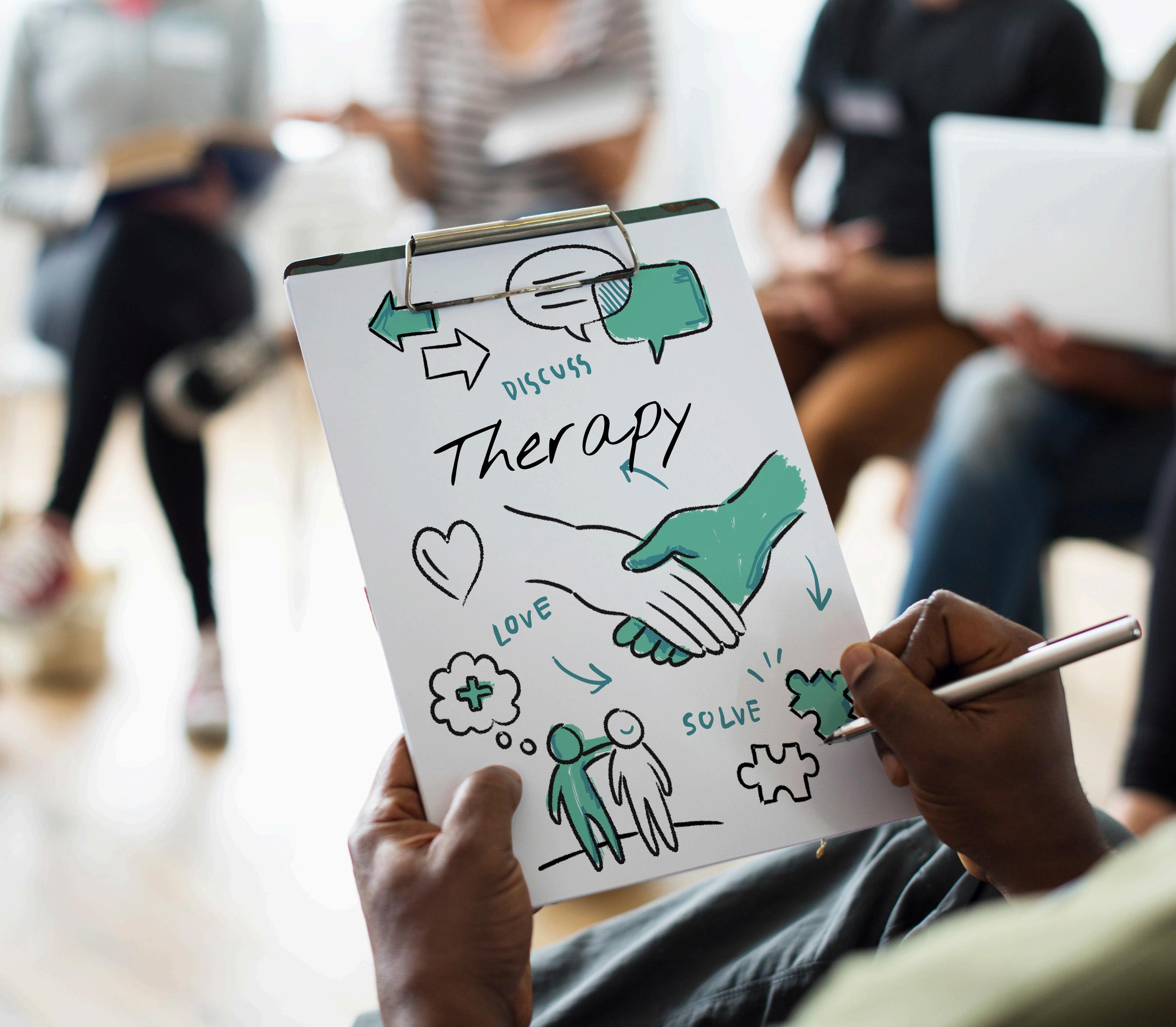

WhyExperiential TherapyIstheFutureof MentalHealth
www.wishoperecovery.com

Introduction
Mental health care has long relied on traditional talk therapy to address emotional and psychological challenges. While effective, many individuals struggle to fully express their emotions through words alone. This is where experiential therapy comes in—a dynamic and interactive approach that engages individuals on a deeper level. By using hands-on activities, roleplaying, and creative expression, experiential therapy allows clients to process emotions more effectively. As mental health awareness grows, this approach is gaining momentum and is widely regarded as the future of mental health treatment.

WhatIsExperiential Therapy?
Experientialtherapyisatherapeuticapproach thatusesaction-basedtechniquestohelp individualsconfrontandprocessemotions, trauma,andpsychologicaldistress.Insteadof justtalkingaboutproblems,clientsactively engageinactivitiesthatfacilitateself-discovery andemotionalhealing.

KeyTechniquesUsedin ExperientialTherapy:

Psychodrama:Role-playingscenariostoprocess emotionsandpastexperiences.
ArtTherapy:Usingcreativeexpressionto communicatethoughtsandfeelings.
MusicTherapy:Leveragingsoundandrhythmto encourageemotionalrelease.
AdventureTherapy:Engaginginoutdooractivities likehikingorrockclimbingtobuildconfidenceand resilience.
GestaltTherapy:Encouragingpresent-moment awarenessandpersonalresponsibility.
EquineTherapy:Usinginteractionswithhorsesto promoteemotionalgrowthandhealing.
TheBenefitsofExperientialTherapy
1.DeeperEmotionalProcessing:
Traditional talk therapy often focuses on intellectualizing emotions, whereas experiential therapy immerses individuals in their emotions, allowing for a more profound healing process.
2.EffectiveforTraumaRecovery
Experiential therapy is particularly useful for those with PTSD, as it helps them revisit and reframe traumatic memories in a safe, controlled environment.
3.EnhancedSelf-Awareness
By actively engaging in activities, clients gain a greater understanding of their emotions and behaviors, leading to meaningful personal growth.
4.StrongerMind-BodyConnection
Many experiential therapy techniques involve physical movement, which helps in releasing stored trauma and reducing stress.
5.ApplicabletoaWideRangeofConditions
Experiential therapy is effective for treating: Depression
Anxiety disorders
PTSD and trauma
Addiction and substance abuse
Eating disorders
Relationship and family conflicts

WhyExperientialTherapyIs theFuture
1.RisingDemandforAlternativeTherapies
Peopleareseekingmoreengaging,interactive,andpersonalizedmentalhealthsolutionsbeyond traditionaltherapy.Experientialtherapymeetsthisdemandbyofferingdiverse,client-centered approaches.
2.BackedbyNeuroscience
Studiesshowthatexperientiallearningenhancesmemory,emotionalregulation,andneuralplasticity. Thismeansindividualscanprocessemotionsmoreeffectivelycomparedtotraditionalcognitive-based therapies.
3.IntegrationwithTechnology
Virtualreality(VR)anddigitalplatformsarebeingincorporatedintoexperientialtherapytocreate immersivetherapeuticexperiences.VRexposuretherapyisalreadybeingusedtotreatPTSD,phobias, andanxietydisorders.

4.IncreasedAcceptanceinClinicalSettings
Mentalhealthprofessionalsareintegratingexperientialtherapyintomainstreamtreatmentplans, provingitseffectivenessinvariousclinicalandtherapeuticenvironments.
Conclusion
Experientialtherapyisrevolutionizingmentalhealthtreatmentbyofferingamoreholistic,engaging,and effectiveapproachtoemotionalhealing.Withtheriseofalternativetherapies,advancementsin neuroscience,andincreasingclinicalacceptance,itisclearthatexperientialtherapyispavingthewayfor thefutureofmentalhealthcare.Asmoreindividualsseekdeeper,moremeaningfulhealingexperiences, experientialtherapywillcontinuetogainmomentum,reshapingthewayweapproachmentalwellness.

